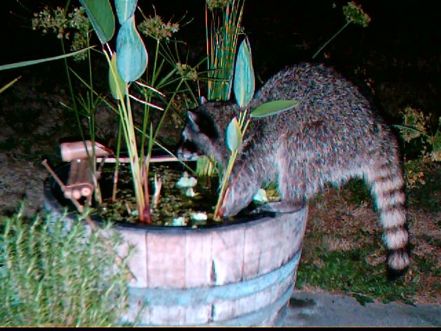
Susan on Gatewood Hill is looking for advice:
Does anyone have a good deterrent for raccoons? Obviously, having a water garden with tasty plants and potable water is an attraction, we admit. What we’d like to know is if anyone has had success with the predator pee, or cayenne powder, or other “scentual” deterrents. These photos were taken last night.


| 42 COMMENTS